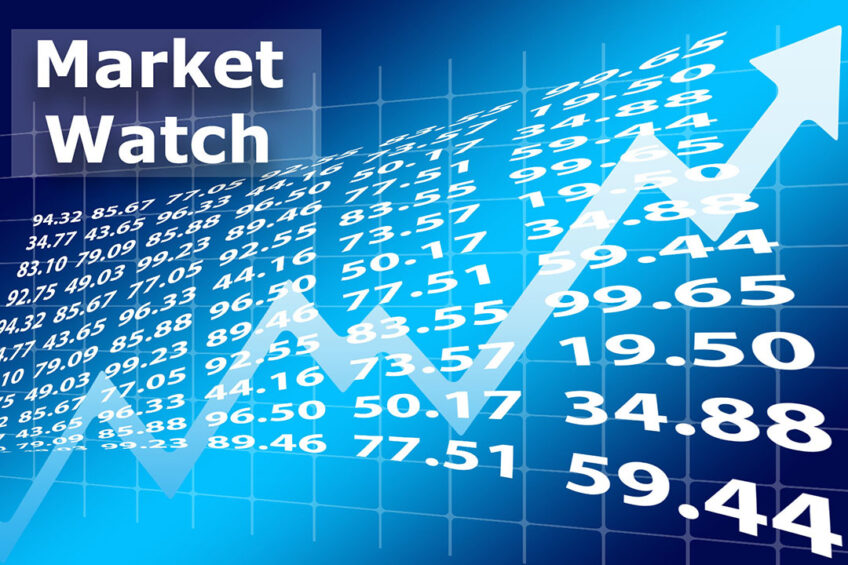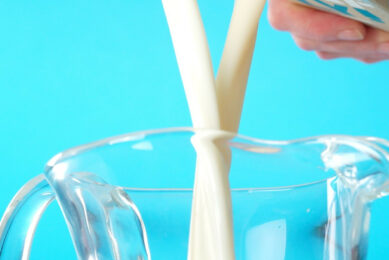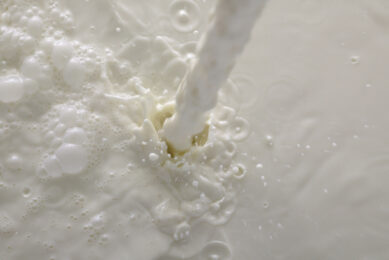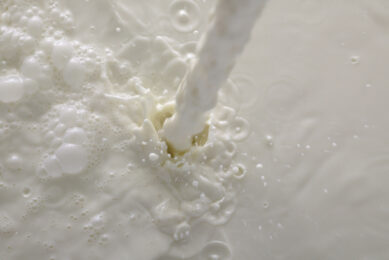Geopolitical risk raises the stakes for dairy

Milk supply remains tight and geopolitical risk raises the stakes in an already high-price environment, Rabobank says in its latest Commodity Markets Research report.
Reports out of the EU continue to point towards a lower year-on-year milk production. The most recent report from the US indicates milk production fell 1% year-on-year in February. New Zealand milk production was down 8.2% year-on-year in the same month.
Rabobank points out that the US milk cow herd increased slightly in February for the first time in 8 months. Still, cow numbers are 96,000 head below year-ago levels, putting positive milk production gains out of reach.
“Replacement heifer inventories are also below year-ago levels, which will be a headwind for any meaningful increase in cow numbers. Against these supply constraints, prices for dairy commodities remain elevated,” the report says.
Rabobank emphasises that China’s import demand in 2022 has started the year off slower so far, down 2% in product volume through February. “Whole milk powder imports, however, showed early strength, up 25% year-on-year in the first 2 months. Whey imports, meanwhile, were down 38% through February.”
OVERVIEW OF GLOBAL DAIRY MARKET PRICES
A layer of uncertainty
Rabobank adds that the war between Russia and Ukraine is adding a layer of uncertainty to an already precarious global marketplace. “Dairy products from the EU and US have been blocked from entering Russia since 2014, so the direct impacts are limited, but indirect impacts will be felt from several angles. Feed, fertiliser and energy prices face upward pressure.”
According to Rabobank’s research, the high energy prices have impacts throughout the entire economy. “But within the dairy sector this will have a particular impact on energy-intensive operations like spray dryers for skim milk powder, whole milk powder and whey.”
Rabobank expects these pressures will be strongest in the EU, where roughly one-third of the gas supply comes from Russia. “Spikes in natural gas prices could disincentivise milk from flowing into powder plants, though cheese and whey may be only marginally better.”
The silver lining for high energy prices is that, when oil prices are high, there tends to be an increase in demand for dairy products in oil-producing economies. “Most of the uncertainty in global markets right now is price supportive for dairy commodities,” the report says. “The major downside risk to markets would be if China were to become involved in the Russia-Ukraine conflict to a degree that would result in major sanctions.”
OVERVIEW OF GLOBAL DAIRY MARKET PRICES
Strong demand
Prices at the most recent global dairy trade auction event on 15 March took a pause and declined 0.9% from the previous event. But they remain in record-high territory. Skim milk powder increased by 1.6% to US$4,545 per metric tonne, while whole milk powder fell by 2.1% to US$4,596 per metric tonne.
New Zealand dairy giant, Fonterra, announced its 2022 Interim Results, which show the co-op has delivered a half year Profit After Tax of NZ$364 million (US$253 million). Fonterra CEO, Miles Hurrell, says the co-op has seen strong demand continue for its products across multiple markets at a time of constrained supply.
“Our earnings have been achieved at a time when our input costs have been significantly higher with the average cost of milk up almost 30% on the same time last year,” Hurrell says. “This shows we’re performing well, even with a high Farmgate Milk Price.” Fonterra’s Chilean dairy business, Soprole, and Fonterra Australia are also performing well.
Australia’s oldest dairy company, Brownes Dairy, will be the first company in Australia to use Tetra Pak’s unbleached renewable milk cartons in Australia. The milk cartons are made from renewable plant-based materials; sustainably sourced, and chain of custody certified.
By switching to plant-based polyethylene material in the cartons, the carbon footprint of this packaging is reduced by 16% over regular milk cartons. The cartons are 100% recyclable. Studies suggest 90% of Australian consumers are concerned about sustainability. Brownes CEO, Natalie Sarich-Dayton, says Brownes Dairy scoured the planet for the most sustainable milk carton packaging in the market.
Join 13,000+ subscribers
Subscribe to our newsletter to stay updated about all the need-to-know content in the dairy sector, two times a week.










